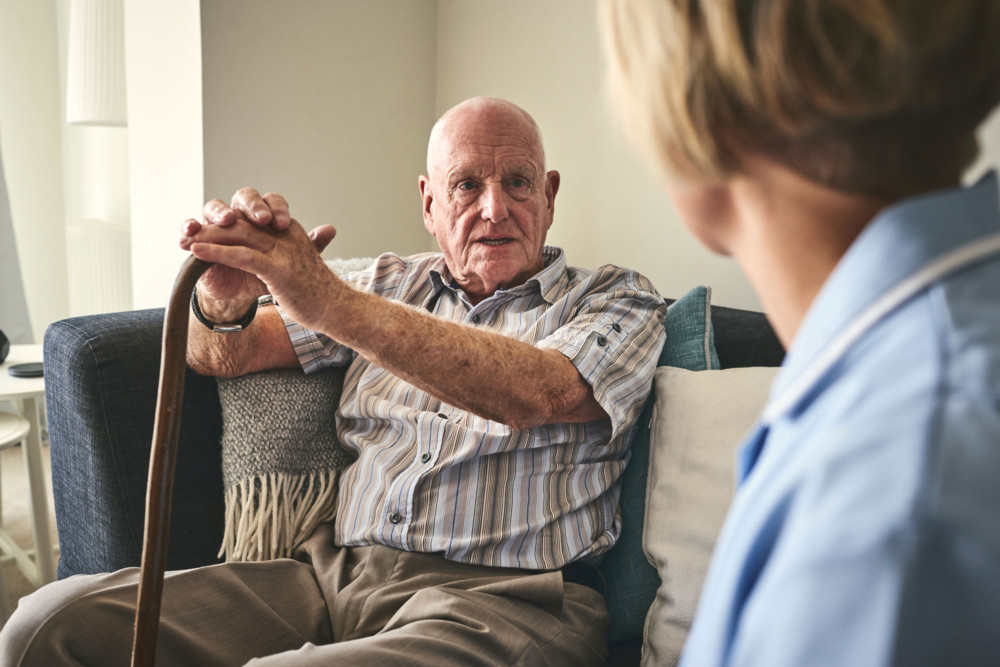Confronting Death to Live a More Mindful Life
Written by: Jordan Gerecke, LMSW, Master Level Therapist
“What do you think happens to us after we die?”  I ask my client, simultaneously curious and trepidatious. Death is a difficult topic for many of us, especially those of us who live in Western society, which places a taboo over the topics of death and dying. This very taboo may be arousing some discomfort in you as you read this. My goal is not to cause discomfort, but rather to challenge the notion that we benefit from avoiding thinking about death and to present an alternative in which confronting our mortality can lead us into living more fulfilling lives.
I ask my client, simultaneously curious and trepidatious. Death is a difficult topic for many of us, especially those of us who live in Western society, which places a taboo over the topics of death and dying. This very taboo may be arousing some discomfort in you as you read this. My goal is not to cause discomfort, but rather to challenge the notion that we benefit from avoiding thinking about death and to present an alternative in which confronting our mortality can lead us into living more fulfilling lives.
The Death Taboo and Death Anxiety
In Western society, talk of death typically incites feelings of fear, anxiety, and dread. In a culture that prioritizes positivity and feeling good, we tend to avoid conversations that elicit such emotions. Beyond this, our culture values youth, vitality, and productivity, which contributes to an aversion to aging and older adults, as we recoil at the reminder of the impermanence of these attributes. Finally, fear of death connects to fear of the unknown. What happens after death may be the ultimate question without an answer, which produces significant discomfort in a culture that yearns for certainty, whether through scientific inquiry or religious doctrine.
Why We Should Confront Our Death Anxiety
When something like death triggers anxiety, our natural response is to avoid the trigger and anything that reminds us of it. However, when we avoid a trigger, this only fuels the surrounding anxiety. The reduction of anxiety is rarely possible without confronting the very thing that we are trying to avoid. With certain anxieties, triggers are relatively avoidable and may never require confrontation (like airplanes, snakes, or extreme heights). However, death will inevitably touch each of our lives, whether through the loss of a loved one or our own imminent mortality, and chronic avoidance of death can leave us ill-equipped to handle it when it does show up at our doorstep.
What Does it Mean to Confront our Death Anxiety?
An acknowledgment of death and its inevitability is an acknowledgment of reality. Life, with all of its joys and trials, is limited in duration. We each are only given so much time on this planet, and we do not know how much time we will have. While it is natural for a reality like this to evoke some anxiety, if we sit with it a little longer, it can prompt a different response. If we can accept that time is a limited resource, this can drive us to cherish it even more and reflect on how we want to spend it. How do you want to spend your time? Are there things that you want to do more of? Less of? Are there ways that your life right now does not line up with your values, or the things that matter most to you in life? Are there changes that you can make, no matter how small, so that you can better live out your values?
Living Life Mindfully
Looking at death for the reality it is can not only help alleviate the anxiety surrounding death, but also motivate us to make the most out of life. When I discuss this with my clients, especially those whose lives have been touched by aging or chronic illness, I speak to them about striking a balance. We do not want to be so aware of death that its inevitability consumes us, poisoning our lives with anxiety and hopelessness. However, we also do not want to live in denial of death, as this can lead us to mindlessly move through the years, always assuming that we will have more time. There is a sweet spot somewhere in the middle, where a mindfulness of death can lead us to live more mindful lives.
My clients come from all faith backgrounds and belief systems. Usually, when I ask them what they think happens after death, their answers are not that frightening. They range from nothingness to reunion with family to oneness with the divine. No matter what they answer, I always take the opportunity to remind them that they still have time left before they face the great unknown. What do you want to do with that time?
Jordan Gerecke, LMSW, is a Master Level Therapist at Jewish Family Services of Delaware and part of the JFS Fellowship Program. She provides individual and group therapy services to clients experiencing a wide range of concerns, including depression, anxiety, grief, chronic illness, and caregiving stress.
Start your therapy journey today by submitting an online intake form or contact our Intake Department at 302-478-9411 ext. 306

